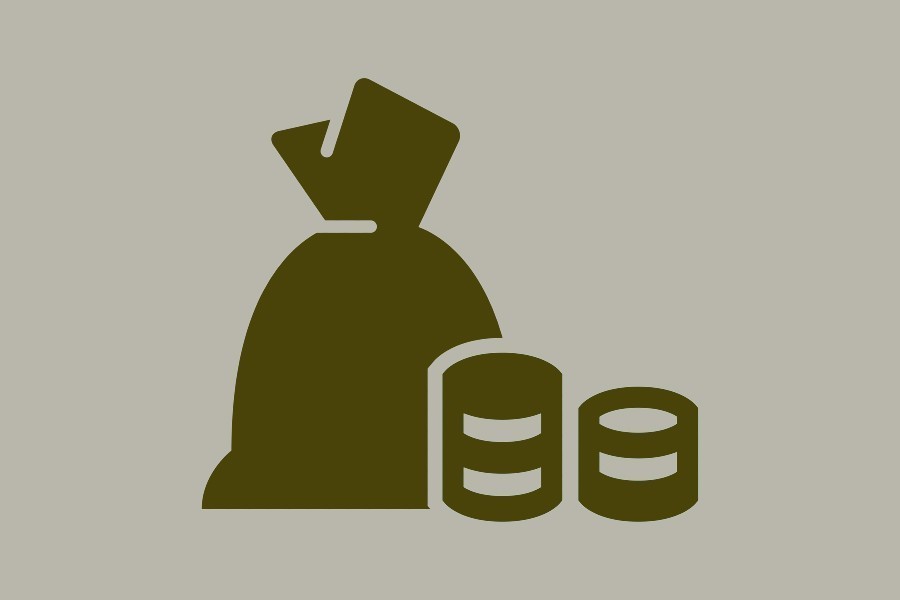The government debt of Bangladesh surged to a new high in 2020 than in 2019. However, the country's other sectoral debts declined during the period under review.
The picture came up in an analysis on the frontier markets, conducted by the Washington-based Institute of International Finance (IIF).
Bangladesh is a frontier market, which is more developed than the least developed countries. But it is too small, risky or illiquid to be generally classified as an emerging market economy.
The IIF showed that Bangladesh government debt reached 39.6 per cent of the GDP (gross domestic product) in 2020, nearly 4.0 percentage point higher than that in 2019 calendar year.
It measured three other sectoral debts for the period for Bangladesh, where two debt cases were down, while one remained stable or the same.
Bangladesh's household debt, consisting of loans taken by families from the financial system, stood at 9.2 per cent of the GDP in 2020, down by 0.8 percentage point over 2019.
The non-financial sector debt, taken by autonomous bodies or such other institutions, stood at 34.2 per cent of the GDP in 2020, down by 1.3 percentage point than in 2019.
The financial sector debt, usually taken by the country's financial institutions, remained the same at 1.9 per cent of the GDP in 2020 and 2019.
Economists said the government debt surged following a sharp contraction in economic activities last year.
They said the government debt increased both in domestic and external fronts in 2020.
The said household debt dropped in the year under review, as people refrained from purchasing assets due to the pandemic - a time when saving life was of utmost importance.
Dr. Zahid Hussain, an independent economist, told the FE: "The government's domestic borrowing was higher in 2020, leading to its overall rise in debt, whereas private sector debt was poor."
Bangladesh received over US$2.0 billion from the World Bank (WB), the International Monetary Fund (IMF) and the Asian Development Bank (ADB) to fund the Covid-related projects.
Dr. Hussain, who had served as the lead economist at the WB, said Bangladesh borrowed mostly through national savings certificates in 2020.
"The government's interest expense is a burden for the borrowing. Bangladesh could float bonds in the international market in 2020 to raise funds at cheaper rates," he noted.
In 2020, cheap fund was available in the international bond market. Eurobond markets were important sources of funding for many frontier economies.


